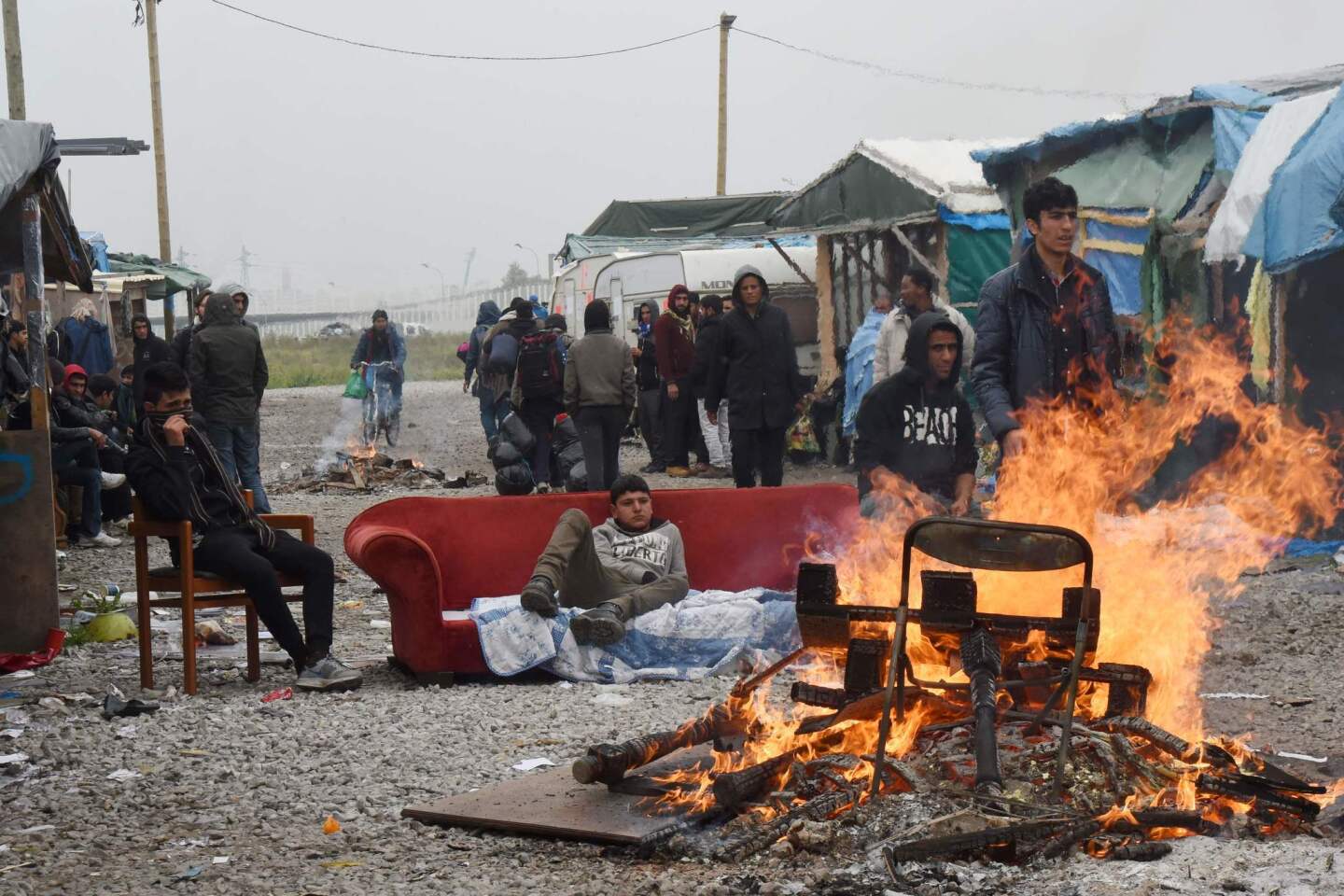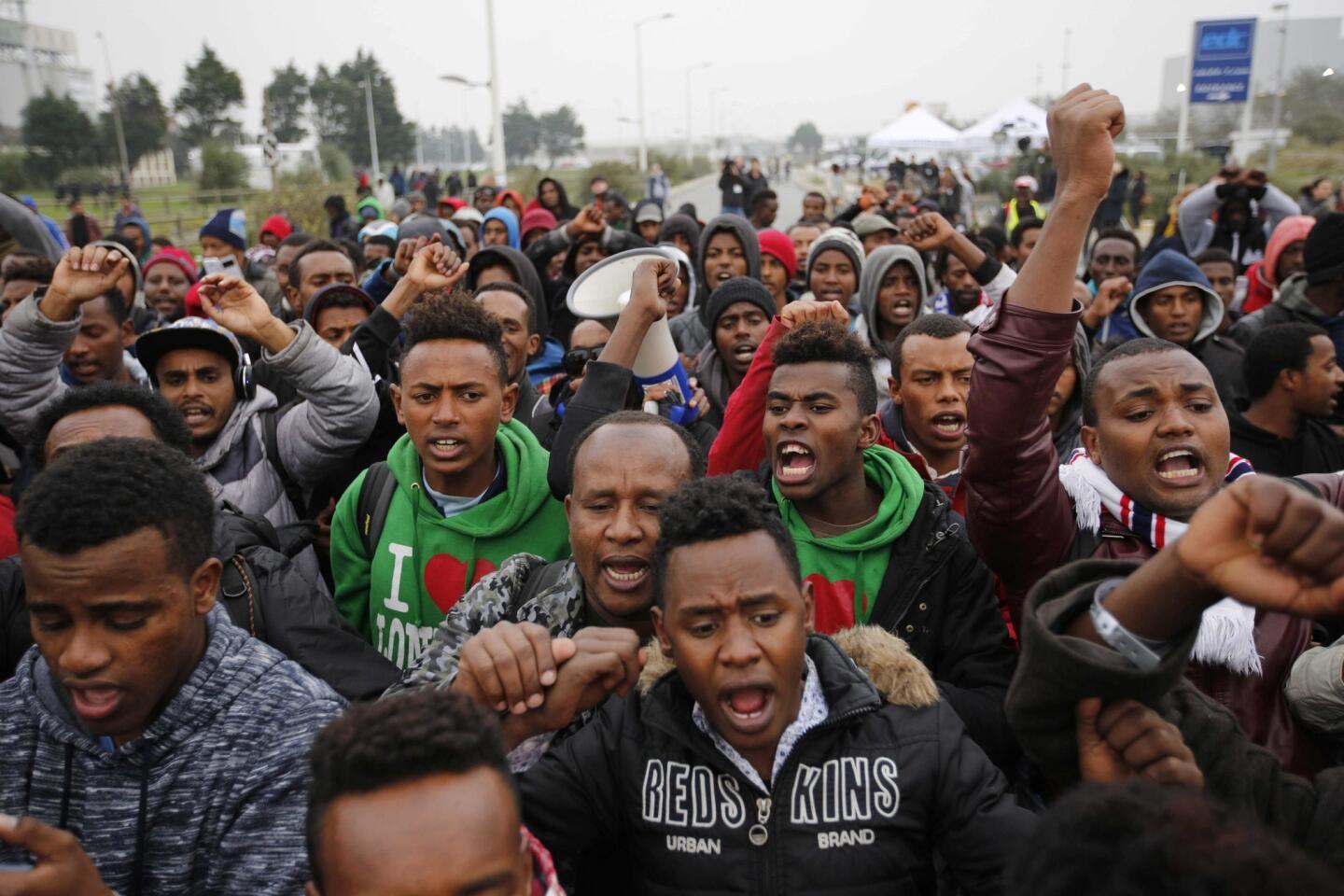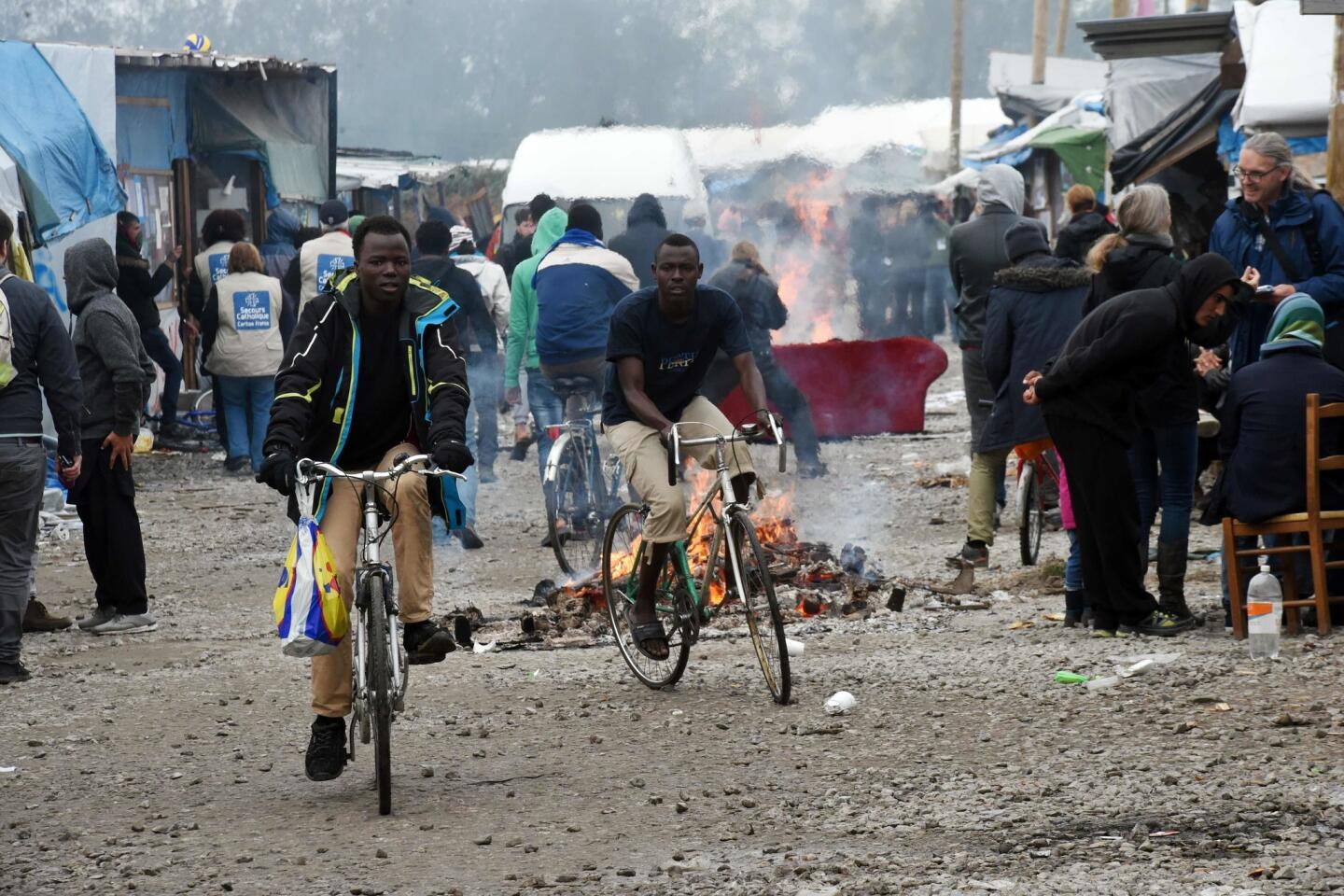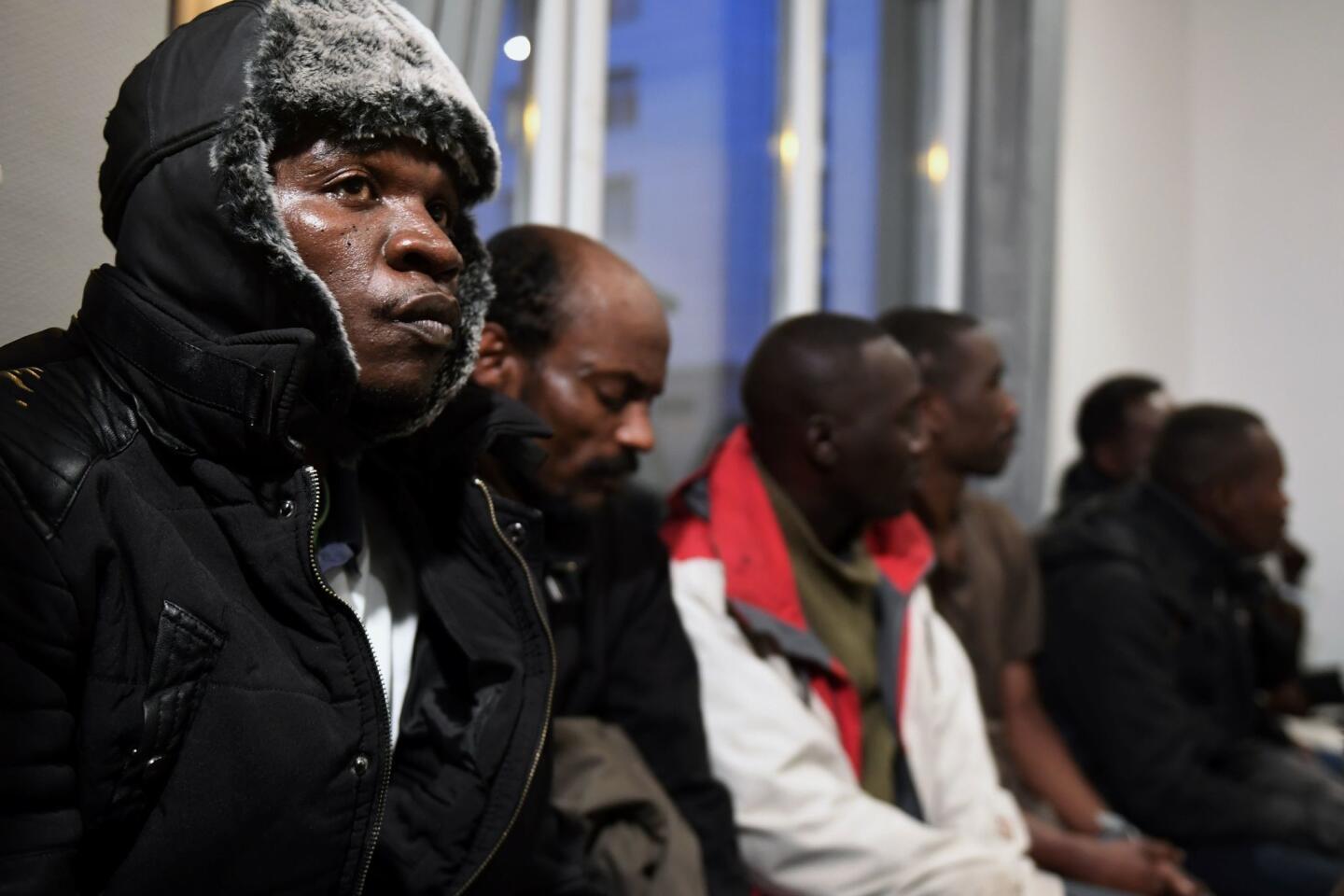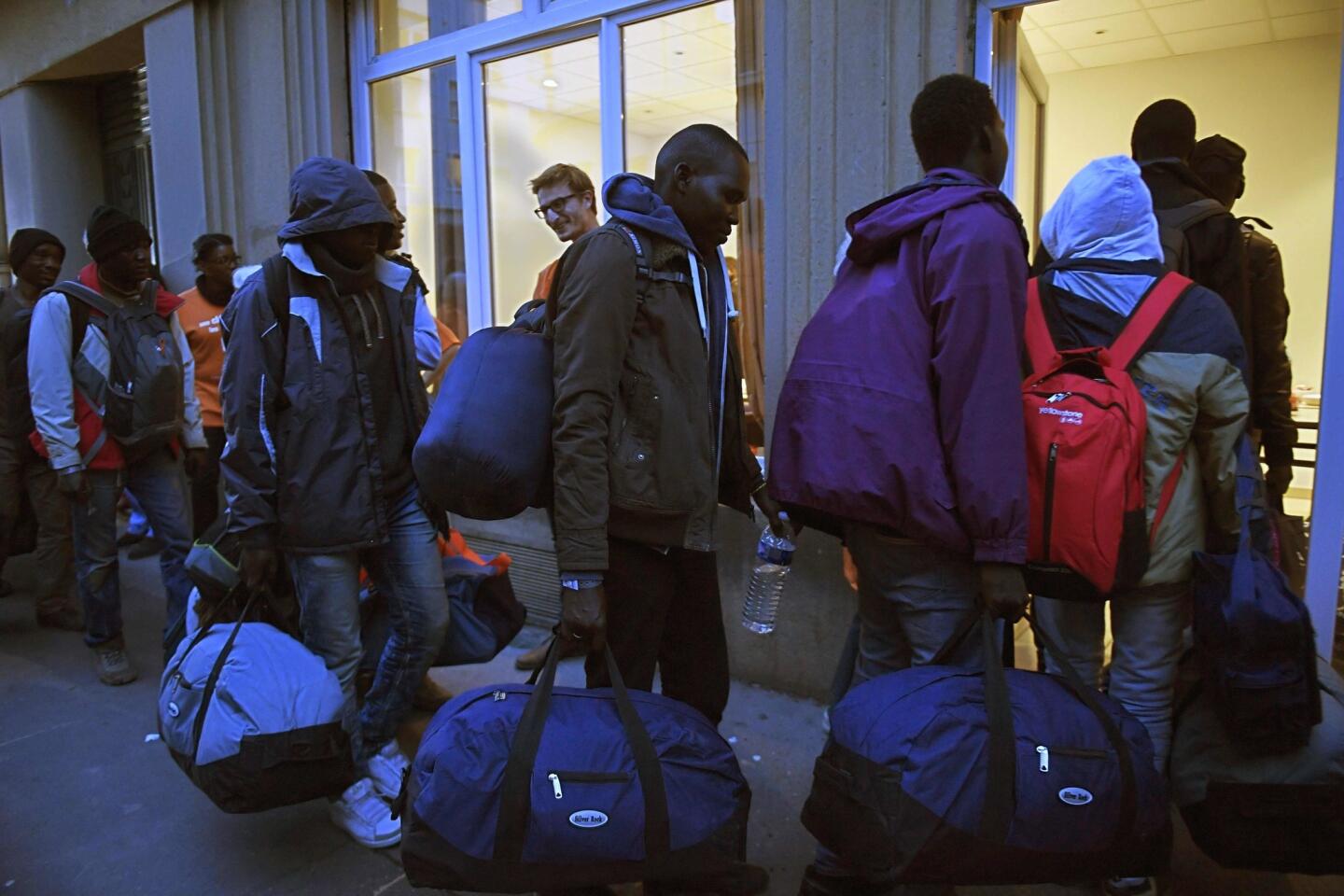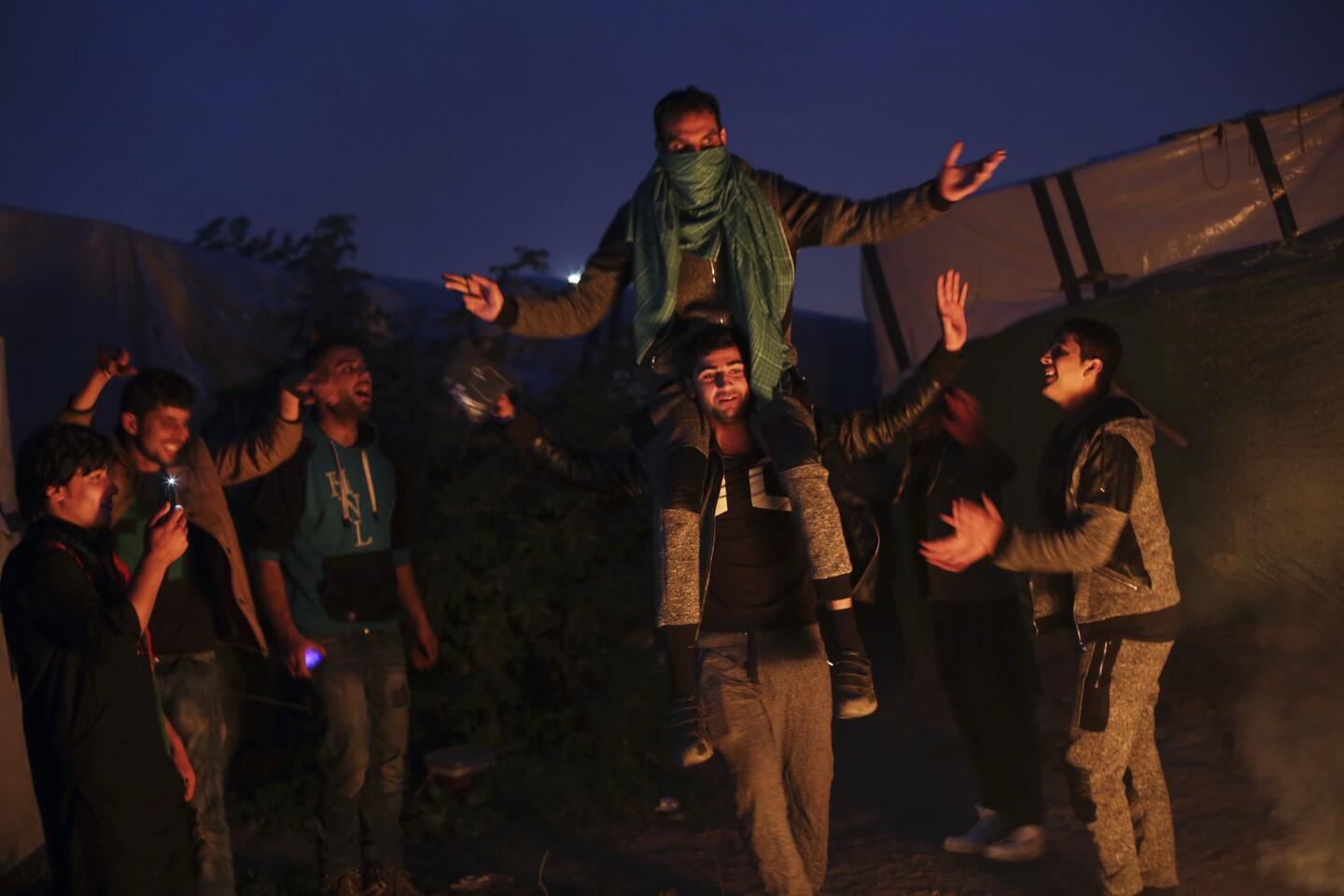‘We don’t know where they will take us now.’ French authorities clear migrant camp called ‘the Jungle’
- Share via
Reporting from Calais, France — When French authorities arrived Monday to begin evacuating the sprawling Calais refugee camp known as “the Jungle,” the lines of migrants eager to leave formed quickly.
From first light, groups of mostly young men from the Middle East and Africa poured out of the encampment that had become their home, carrying their belongings in backpacks and small suitcases.
It was a bittersweet day for many who said they were looking forward to making a fresh start away from the camp, where living conditions were considered miserable, but who also said they were anxious about leaving behind friends and the lives they had built.
“It’s emotional, we have been close friends for months now,” said Said Wahab, 20, of Afghanistan. “We were packing our clothes. It was like a family all leaving together to go on a trip.”
Authorities said the refugee camp would be closed within the next few days and camp inhabitants — about 6,500 by official count, but closer to 8,300 according to aid workers — would be sent to reception centers across the country. Many of them have fled war or poverty in their homelands and are expected to either apply for asylum or be sent home, officials said.
The camp has been seen by some observers as a symbol of the French government’s failure to effectively handle the migrant crisis facing Europe. Many migrants hoped to reach Britain and some have been injured or killed trying to get there aboard trains or trucks heading into the Eurotunnel under the English Channel.
Some leaving the encampment were struggling to accept that they had failed to reach Britain.
I have to go because there is no chance to go to the U.K. They’re closing the borders, they’re closing the camps. There’s nothing for us here.
— Said Wahab, 20, of Afghanistan
“I have to go because there is no chance to go to the U.K.,” said Wahab, who said he had tried to sneak onto a truck bound for England several times a week for the last few months. “They’re closing the borders, they’re closing the camps. There’s nothing for us here.”
Humanitarian aid workers and volunteers from Britain and France had supplied the inhabitants with hot meals, piles of clothes, bedding and even pool tables.
Friendships formed amid adversity, and places of worship were constructed along with restaurants, cafes and schools.
A WiFi truck arrived so the migrants — who come from far-flung places like Afghanistan, Syria, Eritrea and Sudan — could make contact with loved ones and keep track of the news. The camp quickly became a mini global village with a sense of community.
“It was a home — like a village, like a town,” said one Afghan man as he looked around him at the empty storefronts and people streaming past with their possessions in hand. “We don’t know where they will take us now. Maybe far, far away.”
But there was tension too, especially after dark, when fights would sometimes break out. Many considered the camp dangerous.
Ultimately, on Monday, a number of those waiting patiently to get on a bus just wanted peace.
“I came here for life, not fighting,” said one man from Sudan, who had his bags in his hands. “I will go to any city.”
French authorities had announced that they planned to demolish the camp but endeavored to find a way to work with the population after a partial demolition in March was widely condemned by aid groups as overly aggressive.
There were a few flare-ups on Monday as police tried to control the swelling crowds pushing to get to the waiting buses, but it was mostly calm.
When one man became separated from his friends in the line, the remainder of his buddies refused to move on until he had been allowed to pass though the line of riot police. Officers initially refused, but eventually relented.
“They are friends; it’s important for them to keep their community,” a French aid worker told the police.
The group cheered and shouted out “thank you” as they headed straight for a bus, bound for a destination they did not yet know.
Authorities hoped to take 3,000 people in 60 buses to different parts of France on Monday but toward the end of the day, they said only 1,600 had been transported on 40 buses.
Some camp inhabitants seemed unable or unwilling to accept the inevitable. Many men walked around aimlessly, some played ball games or gathered around fires to stay warm. It was clear that many felt a sense of bewilderment at seeing their lives uprooted once again, and renewed uncertainty about where they might end up.
“I have no friends, no life; all my friends are in the U.K.,” said Mahmood Khan, 21, who pointed to a photo at the Jungle Books Kids Cafe and named the unaccompanied minors he knew who had already been relocated to Britain. “The Jungle is closed. All closed.
“Maybe tomorrow, or after tomorrow, I will get on a bus,” he said. “I will make one last try to go to England tonight.”
Boyle is a special correspondent.
ALSO
Only Africans have been tried at the court for the worst crimes on Earth
One researcher uncovers how ‘suicide’ victims of China’s Cultural Revolution really died
More to Read
Sign up for Essential California
The most important California stories and recommendations in your inbox every morning.
You may occasionally receive promotional content from the Los Angeles Times.
